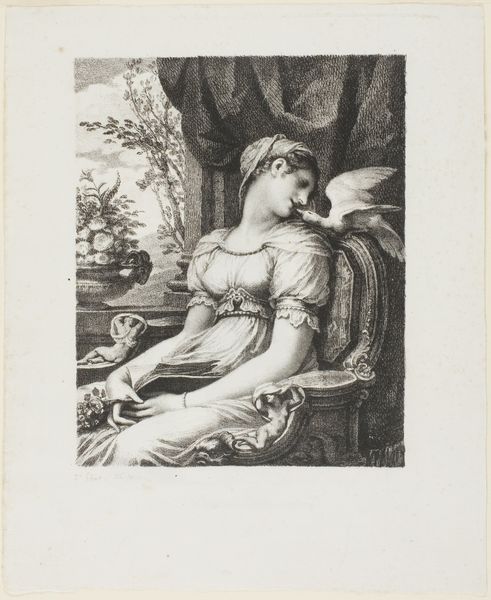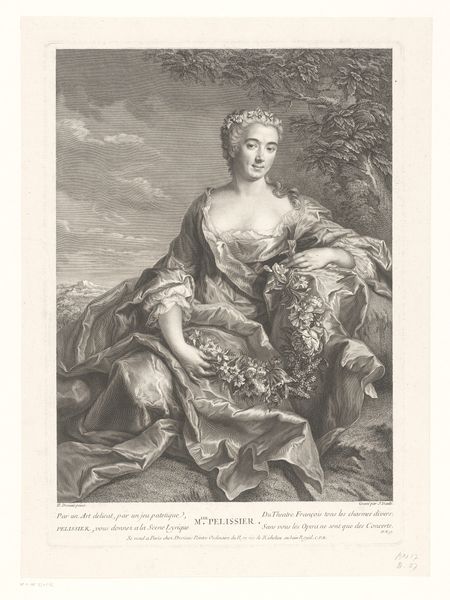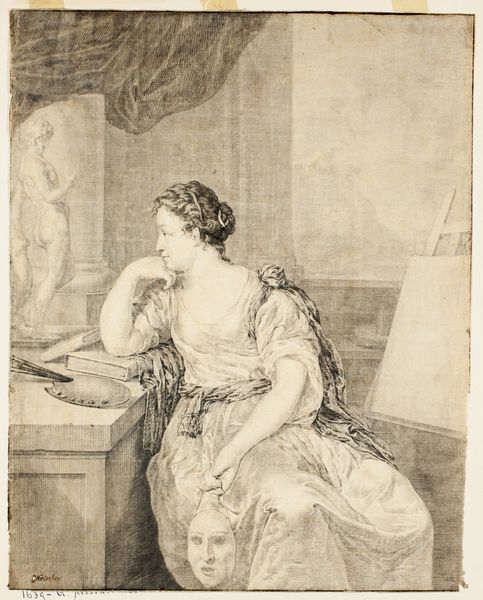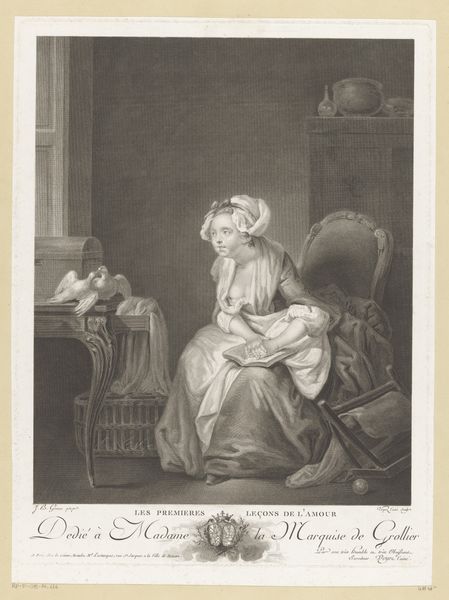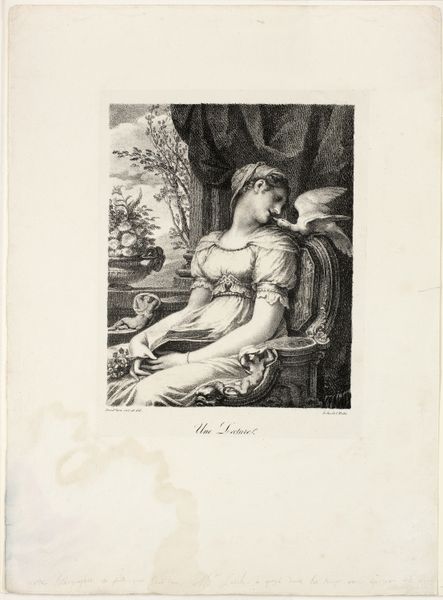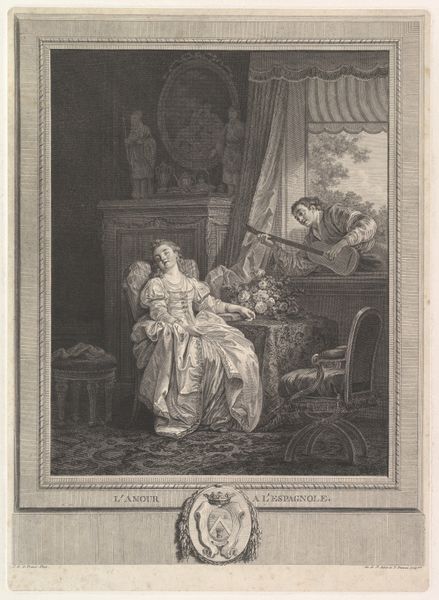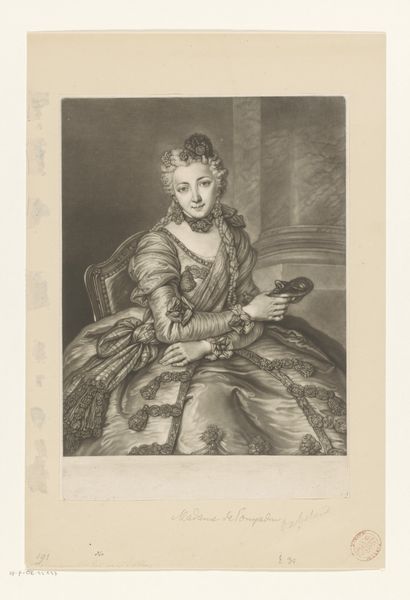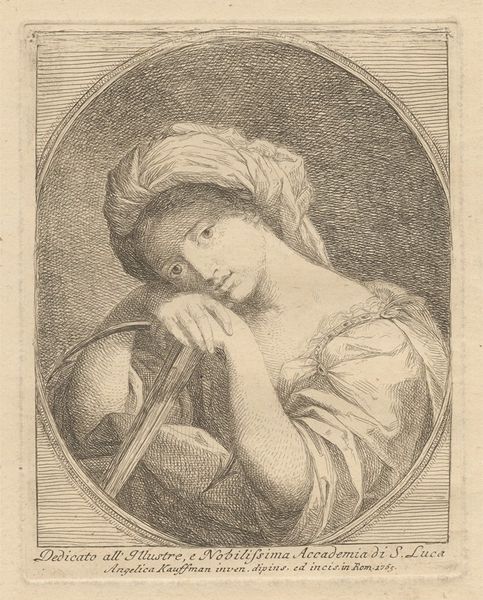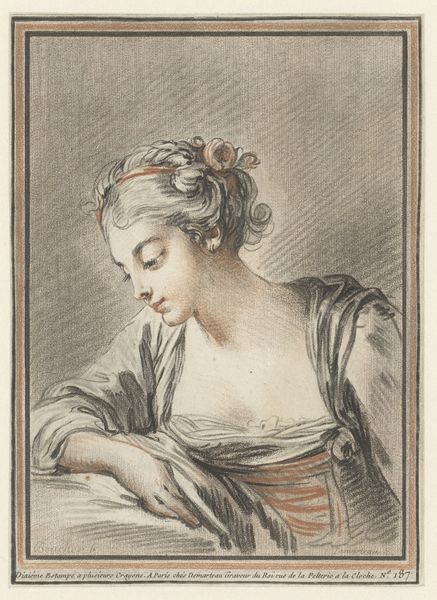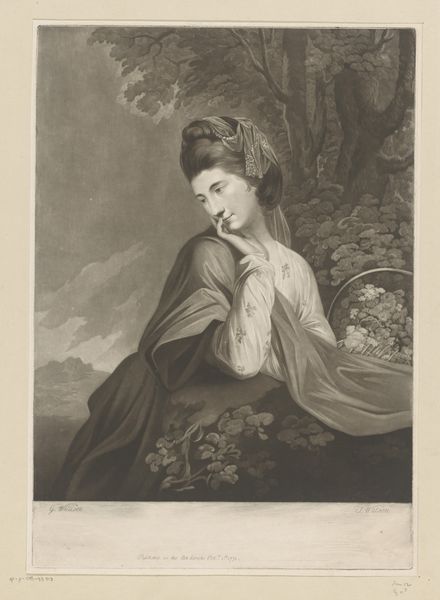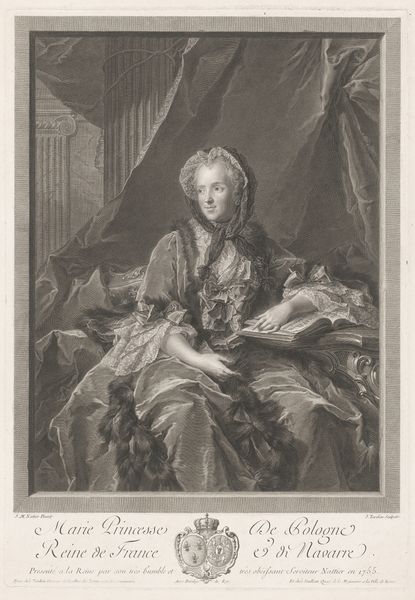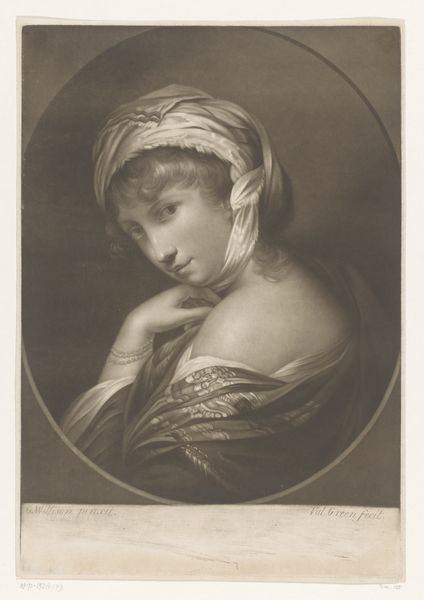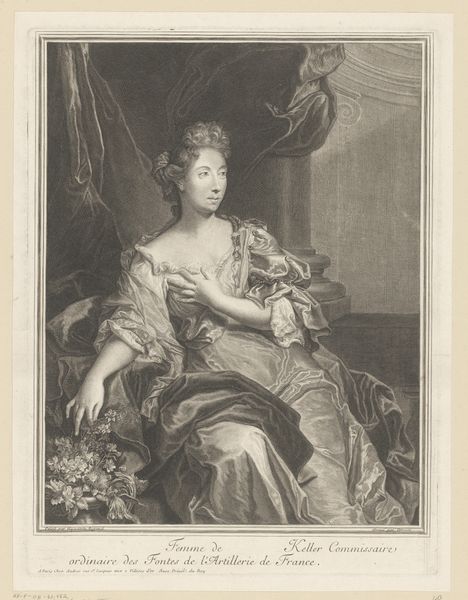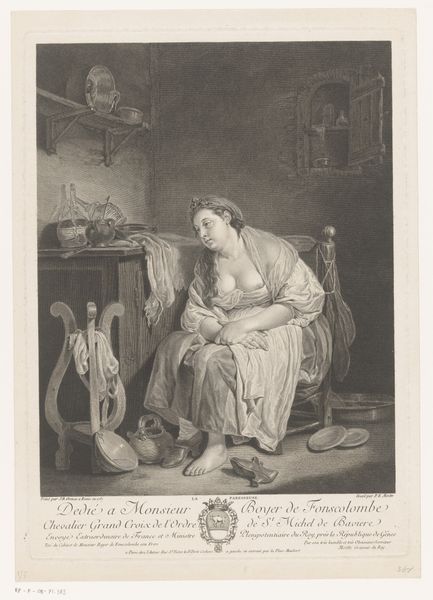
Zittende vrouw met boek en witte vogel 1846
0:00
0:00
hyacinthelouisvictorjeanbaptisteaubrylecomte
Rijksmuseum
lithograph
#
portrait
#
lithograph
#
old engraving style
#
landscape
#
bird
#
pencil drawing
#
romanticism
#
genre-painting
Dimensions: height 180 mm, width 131 mm
Copyright: Rijks Museum: Open Domain
Hyacinthe-Louis-Victor-Jean-Baptiste Aubry-Lecomte made this lithograph of a seated woman with a book and white bird in 1846. Lithography, unlike earlier printmaking techniques like etching or engraving, is a planographic process, using a flat stone or metal plate. Aubry-Lecomte would have drawn on the surface with a greasy crayon, then treated it so that ink only adhered to the drawn areas. This allowed for a more direct, painterly approach compared to the precise, linear qualities of engraving. The resulting print captures a softness and tonal range well-suited to the romantic sensibility of the image. Consider the labor involved: from quarrying the lithographic stone, to the skilled hand of the artist, and the printing process itself. The lithograph democratized image production, making art more accessible, yet simultaneously transforming artistic labor itself within a burgeoning industrial context. The result is an artwork that mediates between traditional craftsmanship and the rise of mass production.
Comments
No comments
Be the first to comment and join the conversation on the ultimate creative platform.
